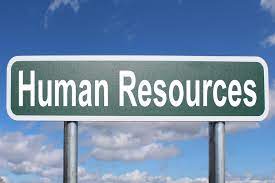The Nexus Between Labor Law Compliance and the Impact on Human Resource Function

Labor Law Compliance: In today’s globalized and rapidly evolving business landscape, labor laws play a crucial role in guaranteeing fair and equitable treatment of employees. Organizations are expected to observe these laws to safeguard the rights and well-being of their workforce. The relationship between labor law compliance and the human resource (HR) function is symbiotic, with compliance as a keystone for nurturing a positive work environment, enhancing employee morale, and bolstering organizational reputation. This essay probes into how an organization’s devotion to labor laws influences the HR function, examining its impacts on recruitment, organizational culture, employee relations, and overall operational effectiveness.
Labor Law Compliance: A Pillar for Fair Work Practices
Labor laws encompass a range of regulations that dictate the interactions between employers and employees, ensuring fair treatment, compensation, working conditions, and protection from discrimination or harassment. Organizations that actively comply with these laws demonstrate a commitment to ethical and socially responsible business practices. By adhering to labor laws, organizations build trust with their workforce, portraying themselves as entities prioritizing employee welfare.
Impact on Recruitment
An organization’s compliance with labor laws significantly affects its recruitment strategies and processes. When a company is known for its devotion to fair labor practices, it can attract a diverse pool of talented candidates. Potential employees are more likely to be drawn to organizations that guarantee their rights and well-being, creating a competitive advantage in talent acquisition. On the contrary, a company with a reputation for defying labor laws may need help attracting skilled individuals, leading to a suboptimal workforce.
Employee Relations and Morale
Employee relations and morale within an organization are usually directly affected by labor law compliance. When employees perceive that their employer respects and abides by labor laws, it nurtures a sense of security and trust. This contributes to a positive work environment where employees are more engaged, motivated, and committed. Contrariwise, a lack of labor law compliance can breed dissatisfaction, leading to grievances, conflicts, and, ultimately, a decline in productivity.
Organizational Culture and Reputation
An organization’s adherence to labor laws reflects its broader organizational culture. A culture that values and upholds employee rights tends to be more inclusive, transparent, and supportive. This commitment to fair treatment becomes ingrained in the company’s DNA, shaping its reputation in the market. A positive employer reputation, in turn, attracts potential employees, customers, and investors who align with ethical and responsible business practices.
Operational Effectiveness
Compliance with labor laws directly affects an organization’s operational effectiveness. Adhering to these laws minimizes the risk of legal disputes, fines, and sanctions arising from non-compliance. Litigation resulting from labor law violations can be time-consuming, financially burdensome, and detrimental to an organization’s image. An organization can channel its resources toward growth, innovation, and strategic objectives by avoiding such pitfalls.
HR’s Role in Ensuring Compliance
The HR function serves as the bridge between an organization’s leadership and its workforce. In labor law compliance, HR plays a pivotal role in various capacities.
- Policy Development and Implementation
HR professionals are responsible for developing, communicating, and implementing policies that align with labor laws. They must guarantee that these policies are comprehensive, accessible, and understood by all employees. Moreover, HR needs to stay updated on changes in labor laws and promptly revise policies to maintain compliance.
- Training and Education
Educating employees about their rights and responsibilities under labor laws falls within the purview of HR. Regular training sessions can empower employees to identify and report potential violations, fostering a culture of vigilance and accountability.
- Conflict Resolution
Disputes arising from labor law violations are usually resolved by HR, who frequently acts as a mediator. Addressing concerns fairly and impartially shows the organization’s commitment to maintaining employee rights.
- Monitoring and Reporting
HR is tasked with monitoring the organization’s compliance with labor laws. This involves conducting internal audits, analyzing employee feedback, and collaborating with legal experts to identify areas of improvement.
- Recruitment and Onboarding
HR professionals guarantee that the organization’s recruitment practices adhere to labor laws, thus minimizing the risk of discriminatory practices during the hiring process. Effective onboarding procedures also involve educating new employees about their rights and the organization’s compliance with labor law.
Challenges and Mitigation
While the benefits of labor law compliance on the HR function are undeniable, organizations may encounter challenges in maintaining consistent compliance.
- Complex and Evolving Regulations
Labor laws are intricate and subject to recurrent changes. Navigating this dynamic landscape can be challenging for organizations, requiring continuous vigilance, education, and adaptation.
- Global Operations
Organizations with a global presence must grapple with labor laws across jurisdictions. Guaranteeing uniform compliance across these diverse landscapes requires a complex understanding of each region’s regulations.
- Resource Constraints
Maintaining labor law compliance demands resources in terms of money, time, and expertise. Small and medium-sized enterprises (SMEs) may need help to allocate adequate resources to stay compliant.
- Resistance to Change
In some cases, organizational leadership or employees may resist changes required for compliance, perceiving them as disruptive or unnecessary. Overcoming this resistance requires effective change management strategies.
Conclusion
In conclusion, an organization’s compliance with labor laws profoundly impacts the HR function. By adhering to these laws, organizations foster an environment of fairness, respect, and accountability. This, in turn, influences recruitment, employee relations, organizational culture, and operational effectiveness. HR is pivotal in ensuring compliance by developing policies, providing education, resolving conflicts, monitoring adherence, and more. Despite challenges, organizations must recognize that labor law compliance is not just a legal requirement but a fundamental ethical imperative that contributes to sustainable growth, employee well-being, and a positive organizational reputation.
References
Lesiuk, T. (2020). Legal Issues Affecting HR Managers (Know Your HR Law) – Factorial. [online] Factorial Blog. Available at: https://factorialhr.com/blog/legal-issues-hr-law/.
SHRM-SCP, L.N.-P., J. D. (2022). What HR Professionals Should Know About the NLRB. [online] SHRM. Available at: https://www.shrm.org/resourcesandtools/legal-and-compliance/employment-law/pages/what-hr-professionals-should-know-about-the-nlrb.aspx.
www.chegg.com. (n.d.). Solved How do you see an organization’s compliance with | Chegg.com. [online] Available at: https://www.chegg.com/homework-help/questions-and-answers/see-organization-s-compliance-labor-laws-impacting-human-resource-function-see-important-p-q86914171





